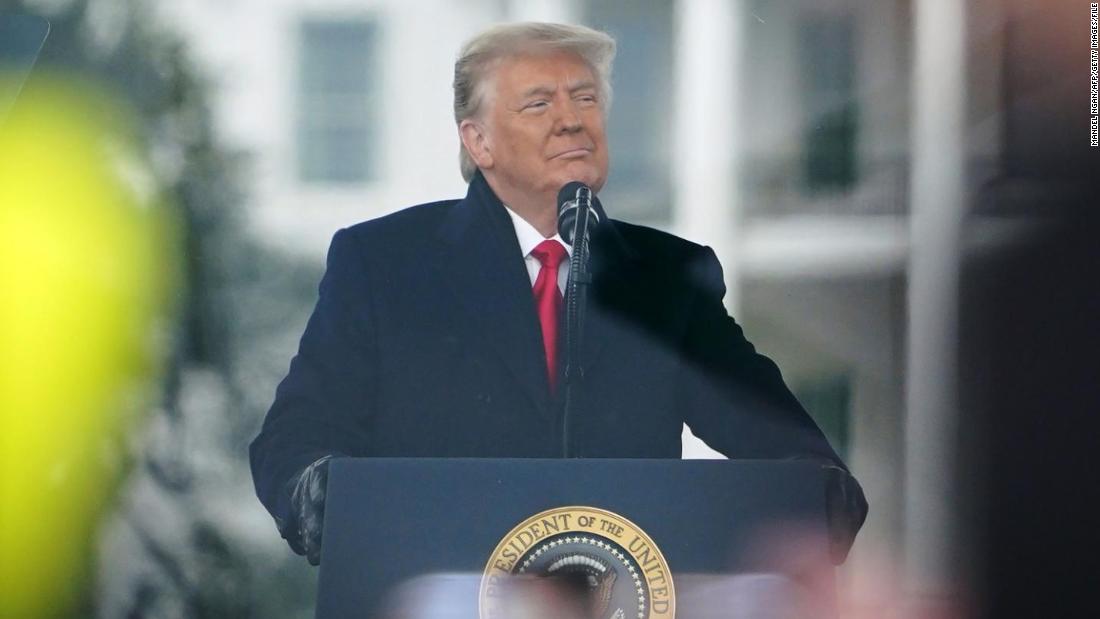[ad_1]
An executive privilege court fight would immediately put the Justice Department’s investigation into a more aggressive stance than even the Mueller investigation — a major years-long criminal probe into Trump while he was President. He was not ultimately charged.
Confronting the privilege issue reflects the care with which the Justice Department is taking as it faces the unusual situation of investigating of a former president for actions taken while in office. And it could bring about one of the first major court fights over the separation of powers in the January 6 criminal investigation.
Former Pence aides testify
Before their recent grand jury testimony, prosecutors, along with lawyers for Short and Jacob, outlined some questions they would avoid in order to steer clear of potential privilege issues, with the expectation that they could return to those questions at a later date, the people briefed on the matter said.
Neither would answer questions about their direct interactions with Trump when they testified in the criminal investigation in recent weeks, according to two people familiar with the matter.
Short, Pence’s former chief of staff, and Jacob, his former chief counsel, both were present in an Oval Office meeting on January 4, 2021, where Trump pressured Pence to go along with a plan presented by attorney John Eastman to block certification of the election results.
Despite the privilege issues, the witnesses spent hours answering questions to the grand jury about the pressure campaign on Pence, which Trump was part of, while avoiding direct questions about the former president, according to people briefed on the matter.
The questions prosecutors asked indicated that investigators are zeroing in on the role of Trump and others such as Eastman, Trump lawyer Rudy Giuliani and others in the broader scheme to block the certification of election results and to organize a set of fake electors who would keep Trump in office despite him losing the election, according to the people briefed.
The extent of a former president’s executive privilege to shield testimony in a criminal investigation remains unsettled law, and Justice Department officials believe Trump is likely to try to assert his claims as he has in the House select committee’s investigation of January 6.
Also clear, given the hurdles on privilege and the outreach to other witnesses, is that prosecutors are still in early stages of examining any direct Trump role. Prosecutors appear to be much further along in their investigation of the Trump allies who were orchestrating the scheme to keep him in office, the people briefed said.
Short is represented by Emmet Flood, a prominent Washington lawyer who is known to be a staunch defender of presidential privilege.
Flood and Jacob’s lawyer declined to comment for this story. An attorney handling privilege issues for Trump didn’t respond to inquiries from CNN on Thursday.
Previously, courts have ruled against Trump’s efforts to protect his White House papers from being handed over to the House select committee.
The Biden administration largely has chosen not to assert privilege claims around January 6, making Trump’s assertions as the former president weaker than if he were still in office.
If another court fight materializes related to January 6 grand jury proceedings investigating Trump, officials overseeing the investigation believe the Justice Department has a strong likelihood of winning such a fight,
Courts generally have viewed executive privilege claims to be more easily cleared away in criminal investigations, compared to congressional probes.
Past efforts to pierce executive privilege
In 1974, the Supreme Court ruled to release the Watergate tapes, despite a presidential executive privilege claim, during the investigation of then-President Richard Nixon, a landmark ruling that hastened the end of Nixon’s presidency.
And during the Clinton administration, the federal court of appeals in DC ruled against administration privilege claims multiple times — and did so relatively quickly. The Supreme Court didn’t stand in the way of criminal investigators then.
“I think it would be effortless for the Department of Justice to litigate and win this” if the issue arises with Trump trying to block a DOJ investigation, the former White House counsel Neil Eggleston said this week. Eggleston argued the privilege issues in court on behalf of the White House in the 1990s.
“This happens in days. This does not take very long,” Eggleston added.
Eggleston described a balancing test judges must use following the Nixon ruling, where the need for presidential secrecy is often not enough to overcome the needs of a federal grand jury investigation.
The investigation into Clinton, run by then-special counsel Kenneth Starr, got a final ruling in the Justice Department’s favor in under five months of pursuing what the Clinton administration believed should be secret from its White House counsel’s office. And a separate criminal inquiry into a Clinton Cabinet member where investigators sought documents took about two years to reach a final ruling.
In Trump’s National Archives case against the House investigators in recent months, the Supreme Court resolved the dispute in three months.
This story has been updated with additional details.
Source link

